30 Jun July 2021: Green Energy and Climate Change


Office: 843 846 2500
www.WillisSinclair.com
Info@WillisSinclair.com
Excellent Quality. Exceptional Service.
July 2021
Number 89

In June, Kandy and I (Bill) went to southwestern Missouri to attend the high school graduation ceremony of two of our grandchildren.
It was a very nice trip (except for fuel prices). Our country seems to be getting back to normal.
We got to visit with 7 of our 8 children and 29 of our 37 grandchildren in a period of about a week.
This is Natalie, one of our beautiful granddaughters, at the graduation for one of her older brothers and one of her older sisters.
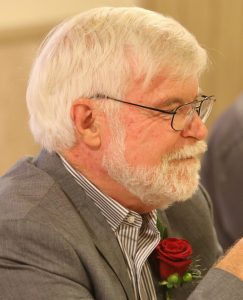 From the
From the
Desk of Bill
We are officially in hurricane season. This would be a very good time to have the trees around your home inspected and trimmed. If we have a hurricane, it is likely most of the damage will be done by trees. Call us (843 846 2500) and Mandy will have someone check your trees for potential problems.
I am hesitant to write objectively about green energy because it is a very politically charged subject – maybe not as much as the election fraud of 2020, but still politically charged.
Unfortunately, much of the information we have about green energy comes from (seemingly empty) talking heads who don’t have much of a scientific background. They say or write basically what is politically correct and what their bosses say.
Honestly, I am much more concerned about being factually (scientifically) accurate rather than politically correct. I am not trying to win any government grants so I don’t have those restraints. Nor do I have any political aspirations. I’m just a guy trying to do the right thing.
I do have a good engineering background. I earned a BS in Electrical Engineering (with honors). I have written technical papers and articles. I have been awarded six United States Patents. If you flew on an airliner in the free world between the 1970s and 2000, you probably had some circuits I designed on the flight deck of your airliner. Literally millions of copies of some of my designs have been put into production (in televisions). I am a Professional Engineer (Florida).
Although I have a good engineering background, I am certainly not holding myself out as any sort of expert – I just have a logical, inquiring mind. The article in this month’s newsletter is basically my reflection on green energy and climate change. It is not an engineering analysis of any sort – just my pondering.
Green Energy and Climate Change
The idea of Green Energy (non fossil fuel) is very popular. Politicians love to talk about it and spend taxpayer money on it. Who could oppose green energy? The question that begs to be asked is, Exactly what is green energy?
|
Always keep in mind “scientific” studies are paid activities and it could be the person paying the tab is looking for a specific result. When tobacco companies, for example, pay to study the effects of smoking, what result do you suppose they want? If the researcher wants more studies to do, he knows what result he needs to “find.” Even if the researcher is relatively honest, this biases him towards an expected result if he wants future business.
|
Actually, there are several problems. Perhaps the first one is solar panels take a lot of energy to produce. Some “studies” indicate it takes about as much energy to make a solar panel as the panel will ever collect over its lifetime. Some studies say the break even point is 3 or 4 years of use (probably under ideal conditions). The point is that solar cells are very complex and do take a significant amount of energy to build.
Keep in mind too, solar panel efficiency drops off over the years. They do not last forever. Temperature extremes and other factors can shorten the useful life. The best panels will only lose 20% of their energy collecting ability in 25 years or so. Other (less expensive) cells have significantly shorter life times. If you do purchase solar panels be sure to ask about the warranty period and guaranteed minimum performance.
If a solar cell gets covered with dust (or pollen), the efficiency drops, so you have to keep them clean. They are also vulnerable to flying debris in storms. Hale storms are not kind to solar panels either.
A second issue is the storage of the collected energy. Solar panels work only when the sun is shining. You can use batteries to store the energy. They are expensive and have a finite lifetime. (A replacement battery for a Tesla costs over $10,000. Lead acid batteries cost less (but are still expensive) and have shorter life.).
Some promoters point out you can just offload your excess power to the power grid and let the power company be your “battery.” If your real intent is to minimize the world power footprint, using the power company as your “battery” does not accomplish that. Ideally, the power company could down size because you and others provide your own power. Using the power company as your backup prevents any size reduction of the power grid. Your utility company has to maintain its generation and distribution grid size because you will need power from the grid if (when) the sun does not shine. So if you use the grid for a backup, the power company needs to make sure the grid has the capacity it needs, but then the power company cannot fully utilize its capabilities because sometimes you are providing your own power. That does not help the power company’s efficiency.
|
Solar cells convert solar energy from the sun to electrical energy. For maximum efficiency, they need to be aimed towards the sun (that is why they are tilted). They must also be kept clean (free of dust and pollen).
|
Another issue with solar is that most appliances operate on alternating current (AC) and solar cells produce direct current (DC). Batteries (basically) store direct current. Certainly, DC can be converted to AC, but there are losses in any energy conversion, so you lose energy anytime you do a conversion. It is important to keep conversions to a minimum to save energy.
Solar cells operate best when the sun shines on them perpendicularly. There are two ways to deal with this. One is to mount the cells on frames that can tilt to follow the sun across the sky. Of course movable frames take energy to fabricate, install and operate, so you have to consider that. The mounts also take maintenance which is not free. A second way to address this is to tip the cell toward the sun (based on your latitude or distance from the equator) and let the cell do the best it can. It won’t be as efficient as tilting mounts, but it is certainly less complicated. Since the sun’s rays change about 46 degrees from summer to winter, it would be good to adjust these mounts several times each year if you want to maximize your energy collection.
Should you not use solar panels? By all means use them if you want. Just realize the energy savings might not be quite as much as your salesman predicts. Presently, there are significant state and federal subsidies for solar panels.
There are clearly good fits for solar. Probably one of the best (in my mind) applications for solar is when you are located off the grid (aka in the boondocks). If you are on the grid, without significant government subsidies, solar does not make much sense to me personally.
How about wind power? While acres of solar panels are not pretty, scores of huge wind chargers make the solar panel look not so bad. I remember driving across the plains in the Texas panhandle late one night and hearing an eerie “whap, whap.” I finally figured out I was hearing some large wind chargers turning. The blades on them are huge – hundreds of feet in length. The world’s largest wind charger has blades that are 107 meters (350 feet) long. Most are shorter, but still 150 feet or so. Although it is not often reported, wind chargers are responsible for killing a number (estimates range from 100,000 to 600,000 per year) of birds.
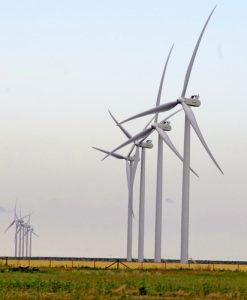
These wind chargers in north Texas have blades that are about 100 feet long. They are a good way to generate power if you have near constant wind, don’t mind killing birds and using rare earth materials mined with Chinese slave labor.
It is difficult to imagine how much energy and materials are needed to build these huge structures to obtain “free” energy. They also need constant maintenance.
|
Wind chargers don’t grow on trees just like solar cells don’t grow on trees. Both take significant energy to fabricate. There are also likely a number of rare earth minerals in the generators. Thanks to federal policy, most rare earth mining is now done in China with what amounts to slave labor. It would be nice if this were not so, but it seems to be that way.
Wind turbines have the same energy storage problem as solar cells. Since many wind chargers are large and operated by energy companies, they usually move their energy to a grid. Again, they supplement, not replace the grid since the wind has been known to stop blowing and yet power demand exists.
Hydro electric power is a very good fossil free energy source. Unfortunately, most of the good locations have already been utilized in our country. Again the power is not really “free” since land has to be confiscated (forcibly taken by the government) and cleared, towns and homes have to be relocated, dams and generators have to be built and maintained. If you pretend fossil fuel was not needed to do any of those tasks, then hydro is fossil fuel free. Obviously, the fossil fuel is much less than a coal fired plant would use, however.
|
The Three Gorges Dam across the Yangtze River in China is the largest hydroelectric project in the world. Hydro power is not without risks. If the Three Gorge Dam collapses (not an unlikely event given the massive flooding and seemingly shoddy construction), it will be catastrophic. Around 400,000,000 people live downstream in areas likely to be flooded. Many would not survive a dam collapse. (The population of the United States is about 330,000,000 for comparison.)
|
Probably one of the best (and most politically incorrect) source of non fossil fuel energy is nuclear power. Although it is about finished in this country, it could produce a lot of clean energy. It can be made safe. Power plants could be located in wise locations with safeguards. Even with several major accidents, virtually no one has been killed in this country from nuclear energy generation. Of course, power plants have to be designed well because if there is a disaster, it could be major.
If you really want to save energy, you can focus on better insulation in your home, better insulated windows, more efficient appliances, using ceiling fans and raising the interior temperature of your home a degree or two. Those items work and will save energy. They might not be as politically correct as solar or wind power, but they are very effective ways to save energy.
While I am probably rocking the boat, perhaps a few words aboutGlobal Cooling, Global Warming, Climate Change are in order. Again, I believe this is being driven by (seemingly empty) talking heads with little concept of basic science. The Earth’s atmosphere is always changing (it’s called weather).
Is the earth heating or cooling? No one knows because no one knows how to measure the temperature of the earth. Certainly, you can measure it at certain locations, but what then? When do you take the measurement? Noon, 6 am, when? What if it is overcast? What if a field near your measuring location has been freshly plowed (plowed fields typically absorb sun and thus become warmer than a pasture.) Do you average them all? How many points do you need to measure? Keep in mind the earth has a rather large surface: nearly 200,000,000 square miles (128,000,000,000 acres). Much of it (about 70%) is water.
If we cannot accurately measure the Earth’s temperature today, we certainly cannot honestly say it is warming or cooling. Remember the sidebar about studies above. If you want to end your career as a climate scientist, all you have to do is write an article questioning some small aspect of climate change. No matter how accurate you are, your career will be over. It seems climate changers do not allow any dissent — reminiscent of the “flat earthers” of years past.
I am sure you have heard of the record high temperatures a few days ago in the Pacific Northwest (Portland and Seattle). The temperature was breaking records (for those locations). What you may not have heard is they are experiencing record cold at Scott Base, Antarctica: -115º F during the same time frame. That is cold enough that CO2 freezes. It is only about 4 degrees above the coldest ever outdoor temperature recorded in the world.
How about the sea level? Is it rising or falling or do we know? We don’t know for sure. How do you measure it? Land masses move higher and lower depending on many different factors. If you measure against the land, are you measuring the land’s movement or the water’s movement or both. How about the Moon’s proximity to the earth? When the moon is closer, the pull on the oceans is greater, so sea levels increase. If you search “is the sea level falling?” you will find about as many articles that say “it is rising” as articles that say “it is falling.” That is because no one really knows.
If you really want to save energy, you can focus on better insulation in your home, better insulated windows, more efficient appliances, using ceiling fans and raising the interior temperature of your home a degree or two. Those items work and will save energy. They might not be as politically correct as solar or wind power, but they are very effective ways to save energy.
While I am probably rocking the boat, perhaps a few words about
Is the earth heating or cooling? No one knows because no one knows how to measure the temperature of the earth. Certainly, you can measure it at certain locations, but what then? When do you take the measurement? Noon, 6 am, when? What if it is overcast? What if a field near your measuring location has been freshly plowed (plowed fields typically absorb sun and thus become warmer than a pasture.) Do you average them all? How many points do you need to measure? Keep in mind the earth has a rather large surface: nearly 200,000,000 square miles (128,000,000,000 acres). Much of it (about 70%) is water.
If we cannot accurately measure the Earth’s temperature today, we certainly cannot honestly say it is warming or cooling. Remember the sidebar about studies above. If you want to end your career as a climate scientist, all you have to do is write an article questioning some small aspect of climate change. No matter how accurate you are, your career will be over. It seems climate changers do not allow any dissent — reminiscent of the “flat earthers” of years past.
I am sure you have heard of the record high temperatures a few days ago in the Pacific Northwest (Portland and Seattle). The temperature was breaking records (for those locations). What you may not have heard is they are experiencing record cold at Scott Base, Antarctica: -115º F during the same time frame. That is cold enough that CO2 freezes. It is only about 4 degrees above the coldest ever outdoor temperature recorded in the world.
How about the sea level? Is it rising or falling or do we know? We don’t know for sure. How do you measure it? Land masses move higher and lower depending on many different factors. If you measure against the land, are you measuring the land’s movement or the water’s movement or both. How about the Moon’s proximity to the earth? When the moon is closer, the pull on the oceans is greater, so sea levels increase. If you search “is the sea level falling?” you will find about as many articles that say “it is rising” as articles that say “it is falling.” That is because no one really knows.
|
Is this Miami’s future? |
Perhaps GPS could measure the sea level, but considering the GPS satellites are about 12,540 miles above mean sea level brings up a question about precision. Allegedly sea level is rising or falling only a tiny fraction of an inch each year — maybe 1 mm (about 0.04 inches).
Since the satellite is roughly 794,534,400 inches above sea level, determining a 0.04 inch change stretches the imagination. In metric, satellites are about 20,181,173,760 mm above mean sea level. You are looking for that number to change by 1. Good luck. GPS altitude information is accurate within several feet (+/- 10 feet or +/- 3,000 mm is not uncommon).
Perhaps the best take away is don’t be wasteful and do be responsible. Don’t fall for all of the hype that seems to fill the airwaves. Do enjoy your summer.
|
Next month, we plan to discuss home generators.
|





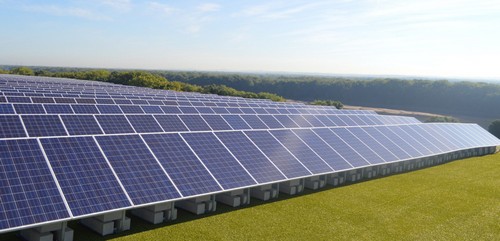
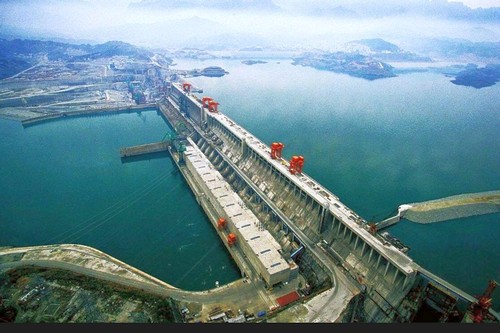
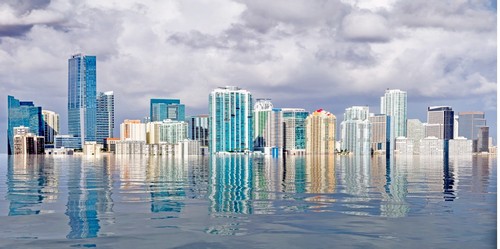
No Comments